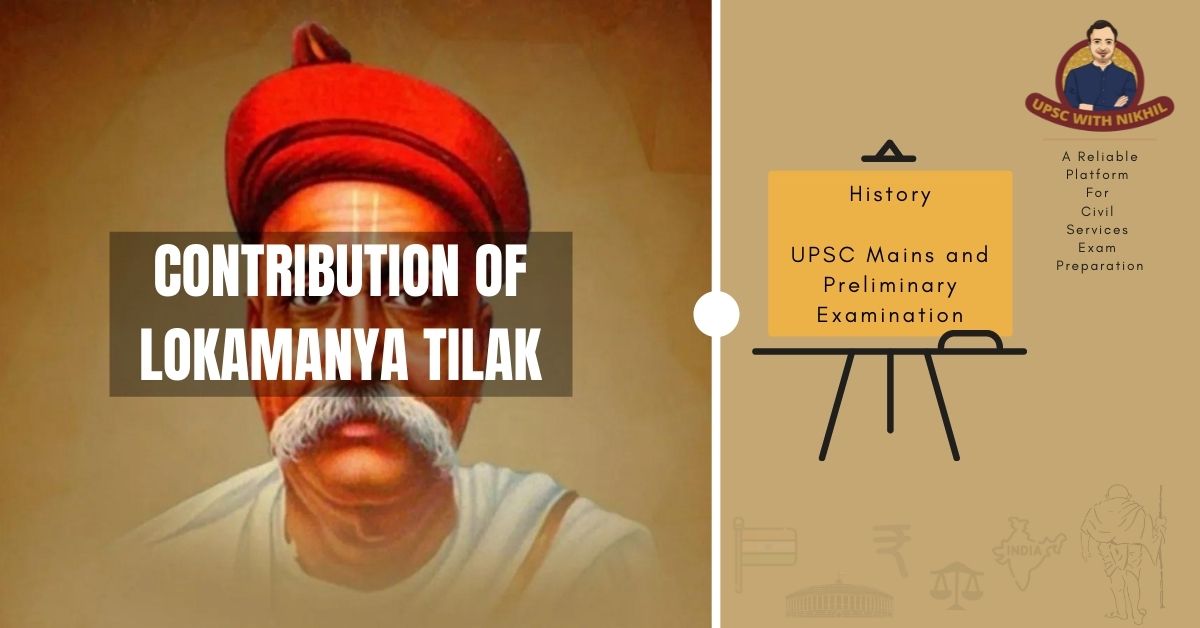Contribution Of Lokamanya Tilak
The Swadeshi and Boycott Movement ushered in a new era of repression in India. People were angry and frustrated once more. As a result of their dissatisfaction, Bengali youth have turned to individual terrorism. In the beginning of 1908, there were several cases of bomb attacks on officials. The government was agitated. Newspapers were once again a major target. It was inevitable that the Government's attention would turn to Lokamanya Tilak, the mainstay of the Boycott movement and militant politics outside Bengal, after new laws for controlling the press were enacted and prosecutions against a large number of newspapers and their editors were launched.
• Tilak published a series of articles about the arrival of the 'Bomb' in India. He condemned the use of violence and individual killings, referring to Nihilism as a "poisonous tree," but he also blamed the government for suppressing criticism and dissent, as well as the people's desire for more freedom.
• ‘Violence, however deplorable, became inevitable in such an atmosphere,' he said. ‘When the official class overawes the people for no reason, and an attempt is made to produce despondency among the people by unduly frightening them, then the sound of the bomb is spontaneously produced to impart to the authorities the true knowledge that the people have reached a higher stage than the vapid one in which they pay implicit rig', he wrote in one of his articles.
• Tilak was arrested and tried for sedition once more on June 24, 1908, for having published these articles. Tilak pleaded not guilty once more and acted with exemplary bravery.

• A friendly police officer warned Tilak a few days before his arrest of the impending event and advised him to take precautionary measures. Tilak laughed and said: The Government has converted the entire nation into a prison and we are all prisoners. Going to prison only means that from a big cell one is confined to a smaller one.”
• Tilak asked the basic question in court: ‘Tilak or no Tilak is not the question. The question is, do you really intend as guardians of the liberty of the Press to allow as much liberty here in India as is enjoyed by the people of England?”
• The jury returned a guilty verdict once more, with only the two Indian members voting against it. ‘There are higher powers that rule the destiny of men and nations; and it may be Providence's will that the cause that I represent prospers more through my sufferings than through my remaining free,' Tilak replied.
• Justice Davar sentenced him to six years of transportation, and Lokamanya was sent to a prison in Mandalay, Burma, after some time. The public outcry was enormous. Newspapers declared that they would defend press freedom by following in Tilak's footsteps.
• On the day he was announced, all markets in Bombay city were closed, and they remained closed for a week. For six days, workers at all textile mills and railway workshops went on strike. Attempts to compel them to return to work resulted in a fight between them and the police. The army was summoned, and by the end of the battle, sixteen workers had been killed in the streets, with nearly fifty others seriously injured. This was hailed by Lenin as the “inauguration of the Indian working class on the political stage.”
• When Gandhiji, Tilak's political successor, was tried in 1922 for the same offence of sedition under the same Section 124A for his articles in Young India, echoes of Tilak's trial could be heard. When the Judge told Gandhiji that his crime was similar to Tilak's and that he would be sentenced to the same six years in prison, Gandhiji replied: ‘Since you have done me the honour of recalling the trial of the late Lokamanya Bal Gangadhar Tilak, I just want to say that I consider it to be proudest privilege and honour to be associated with his name.”
• The only difference between the two trials was Gandhiji's guilty plea to the charges. This was also a way of calculating how far the national movement had progressed since 1908. Tilak had made a significant contribution to this shift in politics and journalism.


